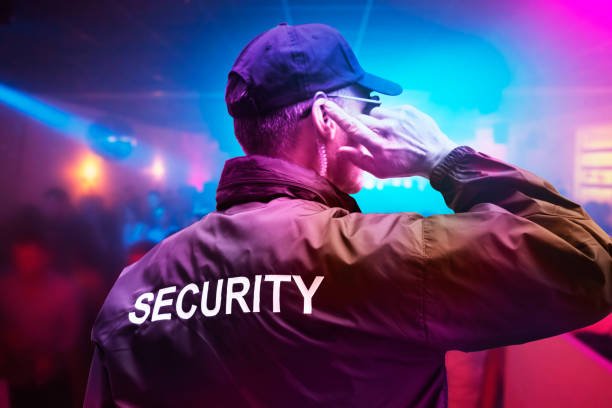
Want to Work Behind the Scenes of Major Events? Here’s How Event Security Opens Doors
Ever wondered who makes sure concerts, sporting matches, and festivals run smoothly? It’s not just the artists and players — it’s the dedicated event security teams working quietly (and sometimes not-so-quietly) behind the scenes.
If you’re looking for a job with purpose, flexibility, and a front-row view of Queensland’s biggest events, event security might be your perfect fit. Whether you're guiding families at a Wiggles concert or keeping fans safe at Suncorp Stadium, there's a rewarding role for almost anyone.
🏟️ Where Could You Work?
South East Queensland is packed with venues that host large-scale public events — and they all need well-trained security teams.
|
Venue |
Capacity |
What Happens There |
|
Suncorp Stadium |
~52,500 |
NRL, concerts (Taylor Swift, Ed Sheeran), State of Origin |
|
Brisbane Entertainment Centre |
~13,500 |
Pop concerts, major music events, expos, family shows |
|
Riverstage (Outdoor) |
~9,000 |
Seated/standing concerts, music festivals |
|
Brisbane Showgrounds (RNA) |
20,000+ |
Ekka, music festivals, expos (e.g. Home Show, Pet Expo) |
|
QSAC – Queensland Sport & Athletics Centre |
~48,000 |
Large concerts, sports events, cultural celebrations |
|
Gold Coast Convention & Exhibition Centre |
~6,000–10,000 |
Comic cons, expos, business conventions, entertainment shows |
|
Broadwater Parklands (Gold Coast) |
Open space |
Community festivals, live concerts, seasonal events |
|
Sunshine Coast Stadium |
~12,000 |
Regional sports, concerts, school events |
|
Logan Entertainment Centre |
~1,100 |
Cultural events, comedy shows, dance and theatre |
These venues are constantly hosting music festivals, expos, stadium tours, sports events, product launches, and more — and security is essential for all of them.
👥 Types of Event Security Jobs (And What You’ll Actually Do)
|
Job Title |
What You’ll Be Doing |
|
Entry Screener |
Scan tickets, check bags, welcome patrons, operate x-ray scanners |
|
Crowd Controller |
Keep people moving safely, prevent overcrowding, spot early signs of trouble |
|
RSA Officer |
Monitor bar areas, check IDs, manage intoxicated patrons |
|
Lost Child/Welfare Officer |
Help reunite lost children with parents, calm distressed patrons |
|
Pit Crew / Field Security |
Stand by the stage or field, help distressed fans, stop people rushing restricted areas |
|
VIP/Backstage Guard |
Keep artists and crew safe, control access to green rooms and secure areas |
|
Mobile Response |
Move quickly when issues arise, respond to incidents, call for support if needed |
|
Control Room Operator |
Watch security cameras, guide field teams, log incidents |
|
Traffic or External Patrol |
Help with parking, outside footpaths, and keeping entryways clear |
📊 How Many Guards Are Needed?
You’d be surprised — even small events require teams of trained professionals. Here’s a rough idea:
|
Event Type |
Crowd Size |
Typical Security Team |
|
|
50,000+ |
400–600 staff including RSA |
|
Pop concert at BEC |
10,000–13,000 |
30–60 guards |
|
Outdoor event (Riverstage) |
9,000 |
90–110 guards |
|
Family show (e.g. Wiggles) |
6,000 |
20–30 staff incl. child support |
|
Major expo (e.g. Supanova, Oz Comic-Con) |
5,000–20,000 |
40–100 guards incl. bag checks, RSA & response teams |
🔐 Is It Safe? What Are the Risks?
Like any public role, there are risks — but you’ll be trained to handle them calmly and professionally. Common challenges include:
Major global incidents (like the Astroworld crush or the Manchester bombing) have shaped how venues plan and train for safety — so today’s event security roles are more professional, structured and important than ever.
🧯 Real Incidents That Changed the Industry
🔧 What the Industry Learned and Adopted
In response to these real-world incidents, the event security sector in Australia — especially in Queensland — has implemented several critical changes:
1. X-Ray Screening and Bag Policies
2. Emergency Response Protocols
3. Crowd Management Tactics
4. Technology & Surveillance Upgrades
5. Multi-Agency Coordination
6. Staff Training and Licensing
These enhancements mean today’s security professionals are better prepared, more confident, and part of a well-drilled operation designed to prevent issues — and handle them professionally if they do occur. of proper planning, training, and communication — ensuring that today's event security teams are better equipped to keep patrons safe while supporting smooth, enjoyable events. – Pitch invasions triggered tighter access rules and bans
🎓 How Do You Get Started?
You don’t have to wait until your security licence is approved to start getting involved. Many people begin in support roles that work alongside licensed security teams. These include:
These roles are ideal if you’re still completing your training or awaiting licence processing. You’ll gain hands-on experience, build connections, and get a feel for event operations from the inside.
To work in security, you’ll need to be:
🧾 Who Hires for These Events?
✔️ Trusted QLD Providers:
These companies recruit constantly to staff festivals, expos, concerts and sports across Brisbane, the Gold Coast, and regional Queensland.
👨👩👧👦 A Role for Everyone: All Ages and Backgrounds Welcome
Event security is an inclusive opportunity open to people from 18 through to those approaching retirement. Many individuals take on security shifts as a flexible, social way to earn extra income, whether around study, family commitments, or semi-retirement. Others build rewarding long-term careers with opportunities to upskill into leadership, training, or management roles.
Females are in high demand across the industry — not only to meet privacy and safety requirements at events but also because they often bring excellent conflict resolution skills, emotional intelligence, and a calm, customer-focused approach that’s essential for family-oriented and community events.
Whether you’re looking for a casual side hustle, a way to stay socially engaged, or a serious new profession — event security welcomes you.
🚀 Final Thought: It’s More Than a Job
Event security isn’t just about standing at a gate. It’s about helping people have an amazing, safe experience — and often being the calm voice in a tense moment. It’s also a career you can grow into: team leader, trainer, control room operator, even emergency planner.
Whether you're looking for weekend shifts, full-time work, or a new career path — event security puts you in the action and makes a real impact.
Want to find out more about training or jobs near you? Reach out — your next role could start with your first event.
Latest News & Articles

Human Resource Training is a trading name of HRD Consulting Australasia Pty Ltd. | RTO Code: 31678
Acknowledgement of country
Human Resource Training acknowledges the traditional custodians of the land and pays respects to elders past, present, and emerging, recognising their ongoing connection to land, waters, and community.
Stay updated with our latest news and updates